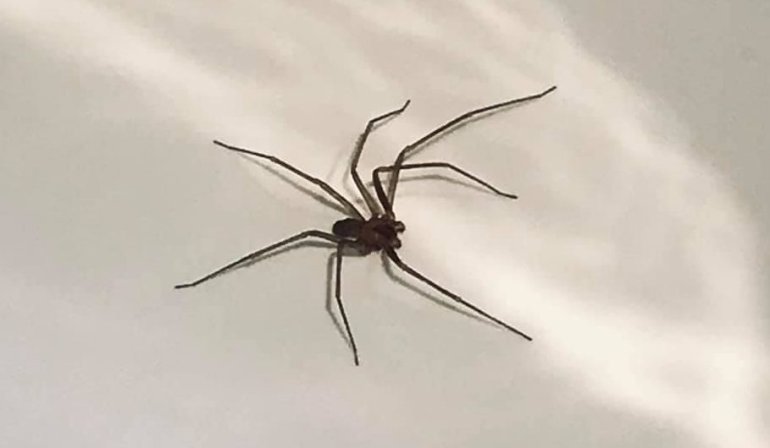
NEW ORLEANS – When Loyola University New Orleans president Tania Tetlow found a spider in her office, she didn’t call an exterminator, she called in a father-daughter team of world-renowned scientists.
Tetlow spotted the spider, which she said was about one and a half inches wide, at the bottom of a sink in her office suite.
After making an assistant trap the spider under a paper cup, she began reaching out to the experts.
“It looked suspiciously like a possible brown recluse spider, so I took a picture of it and sent it to my friend Zack Lemann, who works at the Insectarium,” Tetlow said.
Lemann confirmed that the spider was, in fact, a recluse, but he told Tetlow that he wasn’t sure if it was a brown recluse or a Mediterranean recluse.
Fighting the urge to quickly rid herself of what she described on social media as an “enormous scary spider” by dropping something heavy on top of it, Tetlow turned to her faculty members for a more scientific method of removal.
“Given that I’m pretty cowardly around spiders on a good day, I thought I’d best not touch it,” Tetlow said. “I called our world spider expert who we have on our faculty, Dr. Aimée Thomas, and she and her dad, Dr. Bob Thomas, came right over to rescue me.”

As an Assistant Professor of Biological Sciences, Director of the Environment Program, and Associate Director of the Honors Program, Dr. Aimée Thomas has collected spiders and other insects from locations all over the globe.
Her father, Dr. Bob Thomas, is a Loyola professor and the Director of the Center for Environmental Communication who has also collected specimens on nearly every continent on the planet.
The Drs. Thomas arrived in Tetlow’s office ready to collect the spider, whose bite can produce a painful necrosis in the flesh surrounding even the smallest bite.
“Not only did we collect it, but we were excited about it,” Aimée Thomas said.
The specimen was delivered to Lemann at the Audubon Insectarium, who will soon begin an examination to determine the exact species of the recluse.
Aimée Thomas said recluse spiders are some of the only spiders in Louisiana that are toxic to humans, and they can produce painful infections.
“I just want to make clear for the record that I was right to be scared of the big spider,” Tetlow said.





















